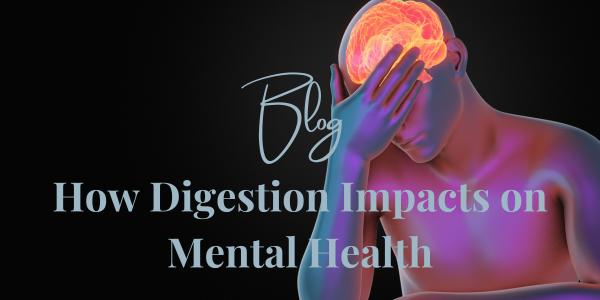The Unseen Link: Understanding How Digestion Affects Mental Health
In the landscape of holistic health and wellness, the interconnectivity of our bodily systems never fails to shape a fascinating and complex picture. Once relegated to the mundane task of breaking down food, the digestive system has since emerged as a linchpin in the burgeoning field of mental health. This transformation isn't merely metaphorical; it's a physiological reality that's now backed by a burgeoning body of evidence.
Our gut, often referred to as our "second brain," wields an unexpected influence, one that spans far beyond its mundane reputation. Incorporating insights from experts in nutrition and psychology, as well as cutting-edge research, this exploration will uncover the profound ways in which digestion can impact our emotional and cognitive well-being.
The Gut-Brain Axis: A Neurological Superhighway
At the heart of the matter is the enigmatic gut-brain axis, a bi-directional communication system between the central nervous system (CNS) and the enteric nervous system (ENS) of the gastrointestinal tract. This ancient dialogue, established over millennia of evolution, has a modern-day significance that's impossible to ignore.
The gut, lined with millions of neurons, is a sophisticated information hub capable of independent neurologic function. With the aid of advanced imaging technologies, scientists have traced pathways from the gut to the brain, revealing a neural superhighway teeming with neurotransmitters and neural cells. Serotonin, famously known as the "feel-good" chemical, is produced in abundant quantities by the gut and plays a pivotal role in mood regulation – a mere glimpse into the intricate mechanistic orchestra that underlies gut-brain communication.
Digestive Disorders and Mental Health: An Intimate Connection
The correlation between gastrointestinal ailments and psychiatric conditions is too prevalent to be dismissed as mere coincidence. Anxiety, depression, and stress-related symptoms often coexist with digestive disorders, such as irritable bowel syndrome (IBS), indigestion, and Crohn's disease.
In a landmark study at McMaster University, researchers discovered that harnessed stress negatively affected gut motility and permeability, corroborating clinical observations that chronic stress exacerbates gastrointestinal distress. The implications are vast, suggesting a compelling role for the gut in the onset and perpetuation of mental health challenges.
The Microbiome: Our Personal Bacterial Universe
Central to digestive prowess is the gut microbiome, an ecosystem of trillions of bacteria living in symbiosis with the human host. The microbiome's intricate balance is crucial for digestion, immunity, and metabolic health. However, more surprisingly, it also influences our mental and emotional states.
A groundbreaking study by Dr. John Cryan and his team at University College Cork demonstrated that altering the microbiome in mice led to observable changes in behavior. Subsequent investigations in human subjects have begun to map the influence of 'psychobiotics'—beneficial bacteria that confer mental health benefits—on conditions such as depression, autism, and schizophrenia.
Nutrition as Neuro-nurturing
The adage "you are what you eat" finds renewed poignancy when considering its implications for mental health. The consumption of refined sugars, processed foods, and artificial sweeteners has been linked to increased rates of depression, likely mediated through their deleterious effect on the gut microbiome.
Conversely, a diet rich in whole foods, high-fiber plant material, and fermented probiotics has been associated with improved mental well-being. Notable for its ability to alleviate both gut symptoms and psychological distress, the Mediterranean diet, with its emphasis on fish, olive oil, and abundant produce, serves as a paradigm of a gut-friendly approach to eating.
Mental Health Implications and Practical Steps
Understanding the role of digestion in mental health is just the starting point. Practical integration of this knowledge into daily routines holds the potential to make a significant impact. Interventions such as dietary modifications, stress management techniques, and the strategic use of probiotics offer a tangible path toward enhancing not just gastrointestinal health, but also emotional resilience and cognitive function.
For those seeking a deeper engagement with this emergent field, participate in Refresh Your Soul webinars, and Book Nutrition consultation with Wendy Sebastian.

Comments
Post a Comment